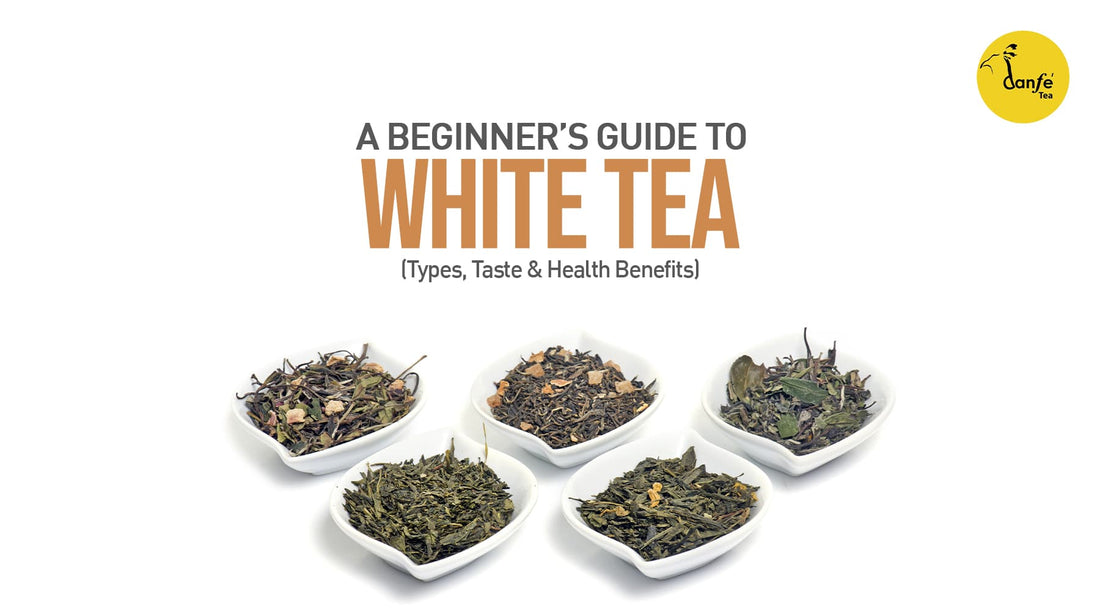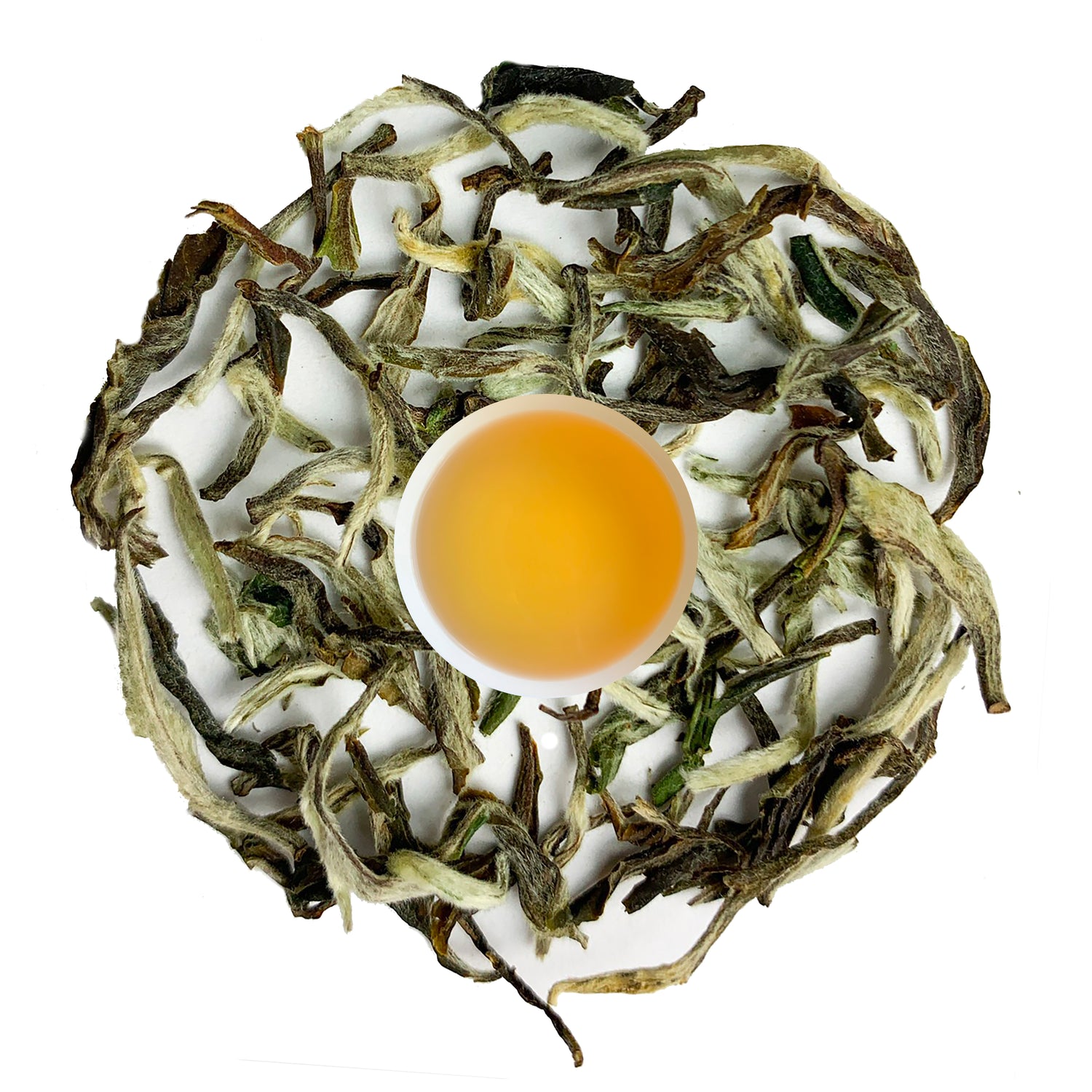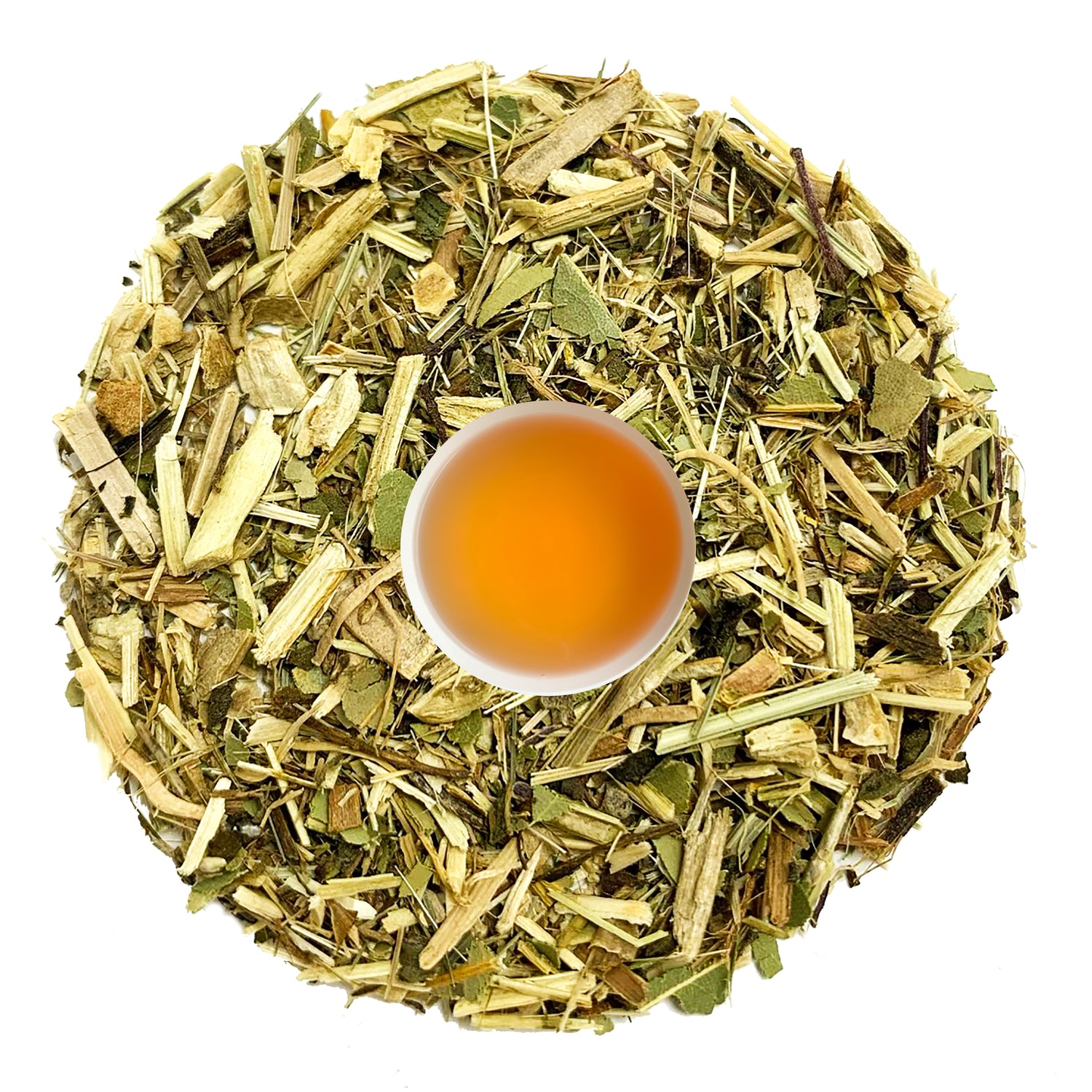
Benefits of White Tea: Health, Flavor & Brewing Guide for Beginners
If you enjoy light, low-caffeine teas with delicate flavors and powerful health benefits, white tea is your perfect match. This rare tea is packed with antioxidants, known for supporting the immune system, reducing inflammation, and protecting against chronic diseases.
Whether you’re new to tea or looking to expand your palate, this guide covers everything from the origins and types of white tea to its impressive health benefits.
What is White Tea?
White tea comes from the Camelia Sinensis. plant, the same plant used for green and black teas. The difference? White tea is made from the youngest buds and leaves, which undergo minimal processing — just withering and drying.
This gentle process preserves more white tea extract antioxidants, resulting in a mild, naturally sweet flavor and a smooth mouthfeel.
A Brief History of White Tea
White tea’s origins trace back to Imperial China, possibly as far as the Tang dynasty, where it was served to royalty as a sign of honor. By the Song dynasty, emperors like Huizong elevated white tea culture, praising its elegance in the classic Treatise on Tea.
Today, white tea is grown in multiple countries, but regions like Nepal’s Ilam and China’s Fujian province remain world-renowned for premium varieties.
Popular Types of White Tea
1. Nepal Special White Tea
High-altitude (7000–7500 ft) buds, harvested before leaves unfurl, offering chocolate-watermelon aromas and nut milk–vanilla notes.
2. Bai Hao Yin Zhen (Silver Needle)
Made only from young buds covered in white down; bright golden liquor with dried apricot notes.
3. White Peony (Bai Mudan)
Uses early leaves and buds; pale honey color with sweet, floral flavors.
4. Nepal Silver Tips
Rare, handpicked downy buds with forest honey aroma and banana-cantaloupe sweetness.
Tasting White Tea
Sweet and delicious! As many people express.
The white tea flavor profile is typically described as fruity, chocolaty, sweet, herby floral, and grassy. The subtle flavor of the white tea makes it suitable for refreshment and relaxation at any time of the day.
Let’s note that the white tea taste differs based on its variety and other factors including cultivation place (soil type, climate, and temperature), processing process, as well as the way you brew the tea.
Benefits of White Tea
While “green tea” might be the most talked about tea for its health benefits, white tea might just surpass the health benefits offered by Green tea. Thanks to the abundant antioxidants, white tea is one of the healthiest beverages in the world.
So, what are the health benefits of white tea? Well, there are so many. Get ready to be surprised to know some of the most dazzling white tea health benefits.
8 Key Benefits of White Tea
1. May Reduce the Risk of Heart Disease
Rich in polyphenols, white tea may lower cholesterol, relax blood vessels, and improve heart function — all important in reducing the risk of chronic diseases like heart disease.
2. Aids Weight Loss
Combining caffeine with epigallocatechin gallate (EGCG), white tea boosts metabolism, supports fat breakdown, and prevents new fat cell formation.
3. Supports Brain Health
White tea extract contains EGCG and L-theanine, which protect neurons, reduce protein clumping linked to Alzheimer’s, and enhance focus and calmness.
4. Promotes Tooth Health
Tannins, fluoride, and antioxidants fight harmful bacteria, reducing plaque buildup and preventing decay.
5. Strengthens Bones
Manganese and catechins in white tea support bone density and may lower the risk of osteoporosis.
6. Offers Potential Cancer Protection
Antioxidants help slow the spread of harmful cells, with studies linking white tea to reduced growth of lung and colon cancer cells.
7. May Help Prevent Insulin Resistance
Polyphenols improve glucose uptake, lowering the risk of type 2 diabetes and metabolic syndrome.
8. Helps Maintain Healthy Cholesterol Levels
Catechins reduce LDL cholesterol and protect arteries from plaque buildup.
Caffeine Content in White Tea
With just 15–30 mg of caffeine per cup, white tea is one of the least caffeinated true teas. This makes it perfect for those seeking a gentle energy boost without the jitters.
May Provide Protection against Lung Cancer
Cancer is one of the leading causes of death on a global level. So, every step taken toward cancer protection is a crucial step. Drinking white tea can be one of those steps as it may also contribute to protection from lung cancer. Research has shown that the antioxidants in white teas minimize the growth of colon cancer cells as they prevent harmful cells from spreading.
May Help Protect against Insulin-Resistance
Insulin resistance is the reason for chronic health issues like heart disease, metabolic syndrome, and type 2 diabetes. Polyphenols in white tea have been linked with lowering the risk of insulin resistance to ensure that all your cells get sufficient nutrients from your bloodstream.
Maintain a Healthy Cholesterol Level
High cholesterol level contributes to plaque buildup in your heart’s arteries. So, it is important to maintain a healthy cholesterol level to protect your heart. The catechins and antioxidants in white tea help in lowering cholesterol levels and prevent blockage of blood flow.
Caffeine Content in White Tea
With less processing, White tea, the most delicate tea contains less amount of caffeine compared with other teas. In an eight-ounce serving, you will generally find a 15 to 30-milligram white tea caffeine level. However, many factors including tea type, steeping temperature, and steeping time affect the white tea’s caffeine content.
How to Store White Tea for Freshness
- Use airtight, opaque containers to block light and air.
- Store away from spices or strong odors.
- Keep the container sealed when not in use to avoid oxidation.
FAQs
What is white tea good for?
White tea contains abundant antioxidants that are linked with many health benefits including the reduction of the risk associated with cancer and heart diseases.
Which is better, green tea or white tea?
Studies show that white tea may have more antioxidants than green tea as white tea is less processed. Both are full of health benefits including protection against heart disease, cancer, and obesity.
Is white tea tea?
Yes, white tea is a true tea coming from the Camellia Sinensis plant.
Is it good to drink White tea every day?
Yes, you can drink white tea daily to get its many health benefits. However, it is usually recommended to limit your white tea intake to two cups a day.
Is White tea good for anxiety?
L-theanine found in white tea calms your brain. So, white tea helps reduce and manage your anxiety.
Is White tea the healthiest tea?
White tea is full of antioxidants studies have shown that white tea contains more antioxidants than green tea making it one of the healthiest teas in the world.
Why is white tea expensive?
Only the finest young leaves and buds are selected for processing into white tea. It makes harvesting time very time-consuming with limited production. So, the price is higher than most teas.
Conclusion
If you are looking for white tea that guarantees the highest antioxidant content with delightful taste and flavor from the Himalayas, then do visit Danfe Tea. We only process the selective handpicked new buds that appear right after the winter to ensure the highest flavor and nutrient-packed white tea.
The Finest Himalayan Loose-Leaf Teas
Danfe Tea brings you the finest loose-leaf teas in the Himalayas. With robust flavors and many health benefits, we invite you to try our high-quality black teas. These teas are available in 2.5-3.5 oz or 1 lb variants. We also offer monthly subscriptions to these products.










